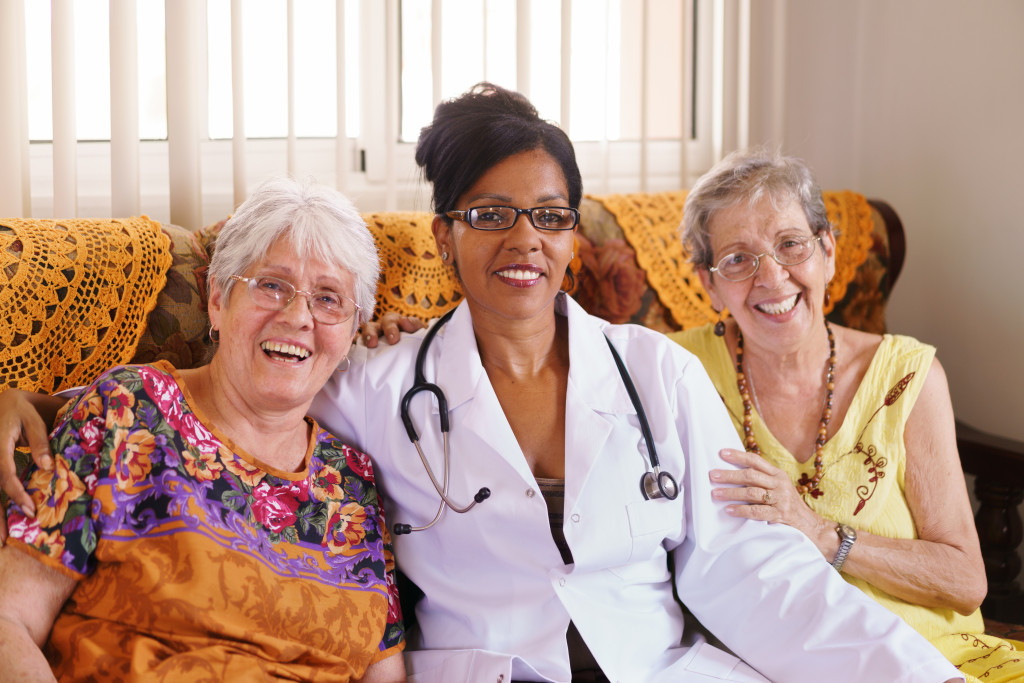It’s challenging enough to live an entire life without any extra responsibilities. Still, it can be overwhelming when you add in the challenge of caring for an elderly parent or relative who is weak and needs help with basic activities.
In addition to the demands of work and family, you may now find yourself responsible for managing medication schedules, providing transportation to doctor’s appointments, and helping with activities of daily living such as bathing, dressing, and eating.
However, most people live with seniors close to their lives, whether their parents or relatives. While it might be challenging, it might be a responsibility you are willing to take. Here are a few home adjustments that can help you create a more comfortable atmosphere for the elderly.
Clear Path for Walking
When caring for seniors in your home, it is vital to ensure a clear path for them to walk. It means removing any clutter from the pathways and ensuring that there are no obstacles in their way, especially if they are unsteady on their feet. They might bump into different household items, each with varying results. Regardless of the case, it might not suit both the senior and the household items.
Prioritize Bathroom Changes
The bathroom can be one of the most dangerous places in the home for seniors. One of the main dangers is that they can easily slip and fall while getting in or out of the bathtub or shower. You can make a few significant and necessary adjustments to the bathroom to help prevent falls. Here are a few of them:
- Install a grab bar next to facilities like the toilet and shower.
- Put nonslip mats in the bathtub and shower.
- Use a raised and comfortable toilet seat to make sitting down and standing up easier.
- Remove any rugs from the floor to prevent slipping.
- Keep the bathroom well-lit so they can see where they are going.
- Please make sure the temperature is comfortable, so they don’t get dizzy from the heat or cold.
- Install a handheld showerhead so they can shower without having to step into the tub.
- Put a stool in the shower so they can rest while showering.
- Get a shower chair that they can use to sit down while showering.
After making these adjustments, it is essential to teach the seniors how to use them.
Make the Stairway More Friendly
The stairs can be dangerous for elders, as they are more likely to fall and injure themselves. Fortunately, you can make these adjustments to make the staircase more friendly for them.
- Install handrails on both sides of the staircase.
- Put nonslip strips on the steps.
- Install a stairlift if there are a lot of stairs.
- Put a gate at the top and bottom of the staircase.
It might be better if elders could avoid the staircase altogether. As a result, they ensure that everything they need for daily activities is on the house’s first floor.
Give Easy Access to the Thermostat
Temperatures changes can have a significant and sometimes negative effect on seniors. As they age, they naturally feel heat or cold more acutely than younger people, and the fastest way to bring their temperature down is to adjust it up or down with a thermostat. A good rule of thumb is that the ideal room temperature for elders generally hovers between 68 to 72 degrees Fahrenheit.
For elders to be able to adjust the thermostat as needed, it is helpful if it is easily accessible. One way to do this is to move the thermostat to a place where they can reach it without standing up or climbing up on something. Another solution is to get a wireless thermostat that they can control from their bed or favorite chair.
Eliminate Trip Hazards
Trips, slips, knocks, and falls are the leading cause of injury for seniors, so it’s essential to eliminate any trip hazards from your home. Some common risks include:
- Cords and wires on the floor
- Raised rug corners
- Pets or animals running around
- Floor mats that are not secured
- Clutter in the pathway
Even small things can be hazardous for seniors. As a result, you must regularly clean up your home and keep pathways and walkways clear, ensuring their safety and the safety of your belongings.
Seek an Alternative Care Situation

There are many benefits to seeking hospice care at home for elders. One of the most important is that it allows them to stay in their familiar environment with all of their belongings, providing a sense of comfort and familiarity in what might be a difficult time.
Another benefit is that they can continue to receive care from their loved ones. It can be an essential source of support and comfort during their final days.
If your loved one cannot stay at home, there are other care options available. These include assisted living facilities, nursing or elderly homes, and hospice care centers. It is essential to research and find the best choice for your loved one.
These are a few of the many ways to make your home more comfortable and safe for elders. Following these home adjustmentips will help ensure that they can live safely and comfortably in their own home for as long as possible.

